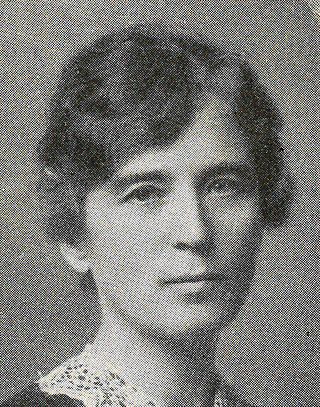Related Research Articles

Women's rights are the rights and entitlements claimed for women and girls worldwide. They formed the basis for the women's rights movement in the 19th century and the feminist movements during the 20th and 21st centuries. In some countries, these rights are institutionalized or supported by law, local custom, and behavior, whereas in others, they are ignored and suppressed. They differ from broader notions of human rights through claims of an inherent historical and traditional bias against the exercise of rights by women and girls, in favor of men and boys.

The legal rights of women refers to the social and human rights of women. One of the first women's rights declarations was the Declaration of Sentiments. The dependent position of women in early law is proved by the evidence of most ancient systems.
Women have contributed to military activities including as combatants. The following list describes women known to have participated in military actions in the 18th century. For women in warfare in the United States at this time, please see Timeline of women in war in the United States, Pre-1945.
Ulrika Eleonora Stålhammar, was a Swedish corporal and crossdresser who served in the Great Northern War. She was put on trial for having served in the military posing as a man and for marrying a woman. She has been the object of plays, literature, research and exhibitions.
Margareta Elisabeth Roos or Anna Stina Roos (1696–1772) was a Swedish woman and a crossdresser who served as a soldier in the Swedish army of Charles XII of Sweden during the Great Northern War.
Elisabeth "Lisbetha" Olsdotter was a Swedish woman, who was executed on a number of different charges after having dressed as a man, served as a soldier and married a woman. On 24 October 1679 Svea Hovrätt in Stockholm brought the charges, earlier raised in the court of Långhundra Häradsting.

Hedvig Maria Reddita Cederschiöld was a Swedish journalist and women's rights activist. She was the chief editor of the foreign office at Aftonbladet in 1909–1921, and the first woman in Sweden to hold such a position at a Swedish newspaper. She was also a secretary and vice chairperson of the Swedish branch of the International Council of Women.
Brita Olofsdotter, was a Finnish soldier of the Swedish cavalry. She is the likely first confirmed female soldier in Sweden, as well as the first confirmed Swedish example of the historical phenomena of women impersonating men to gain access to professions barred to their gender.
Maria Johansdotter, or Maja Jansdotter, also known as Magnus Johansson, was a Swedish spelman and parish clerk. She was the first woman parish clerk in Sweden. She was put on trial for homosexuality and for having posed as a man in 1705.
Anna Eleonora Ekelöf, was a Swedish serial impostor. She committed fraud with a series of false identities, posing as mamsell, noblewoman, officer, Count and the Crown Prince of Sweden before her arrest in 1765.

The status and rights of Women in Sweden has changed several times throughout the history of Sweden. These changes have been affected by the culture, religion and laws of Sweden, as well as social discourses like the strong feminist movement.
Ebba Mauritzdotter Leijonhufvud, also called Ebba Mauritzdotter Lewenhaupt, Countess of Raseborg, Lady of Käggleholm, Eksjöhovgård and Tullgarn, was a Swedish noble and courtier and member of the Leijonhufvud family. She served as överhovmästarinna in 1633–1634 and foster mother in 1639–1644 to Christina, Queen of Sweden. She was also known for her donations to various churches.
Maria Skytte af Duderhof was a Swedish Baroness and Countess known for her unconventional lifestyle.
Anna Jöransdotter, was a finlandssvenskar soldier. She served in the army of Charles XII of Sweden for two years during the Great Northern War, and married a woman. Her case is the perhaps most researched Swedish case of the phenomena of females impersonating males to serve in the military during the modern age. Her actions were the cause of a suggestion to introduce a law regarding homosexuality in Sweden.

Events from the year 1862 in Sweden
The Married Woman Property Association was a Swedish women's rights organisation active in Sweden between 1873 and 1896. Its purpose was to work for the introduction of reformed laws in favor of women's equality with men. The association was founded with the goal to reform the marriage laws regarding the guardianship of men over their wife, and to make it possible for married women to handle their own economy. However, despite the name, they also worked for legal reform in other issues within women's rights. It is regarded as the first women's rights organisation in Sweden.

Events from the year 1686 in Sweden
Feminism in Sweden is a significant social and political influence within Swedish society. Swedish political parties across the political spectrum commit to gender-based policies in their public political manifestos. The Swedish government assesses all policy according to the tenets of gender mainstreaming. Women in Sweden are 45% of the political representatives in the Swedish Parliament. Women make up 43% of representatives in local legislatures as of 2014. In addition, in 2014, newly sworn in Foreign Minister Margot Wallström announced a feminist foreign policy.

Lovisa Mathilda Roos was a Swedish writer.

Gertrud Johanna Almqvist was a Swedish writer and feminist. Throughout her career, she wrote numerous books, particularly on the subject of women, and actively advocated for women's rights. Her works also portrayed female homosexual relationships.